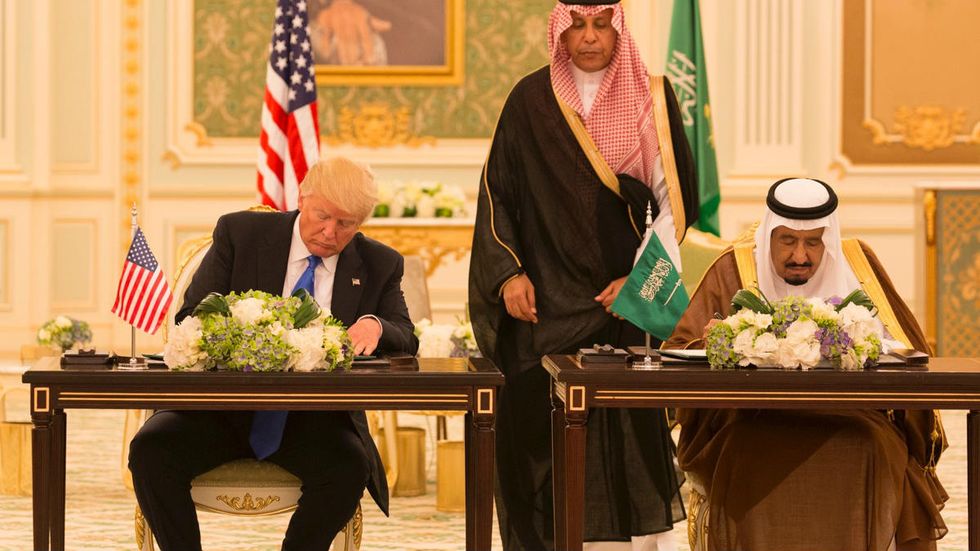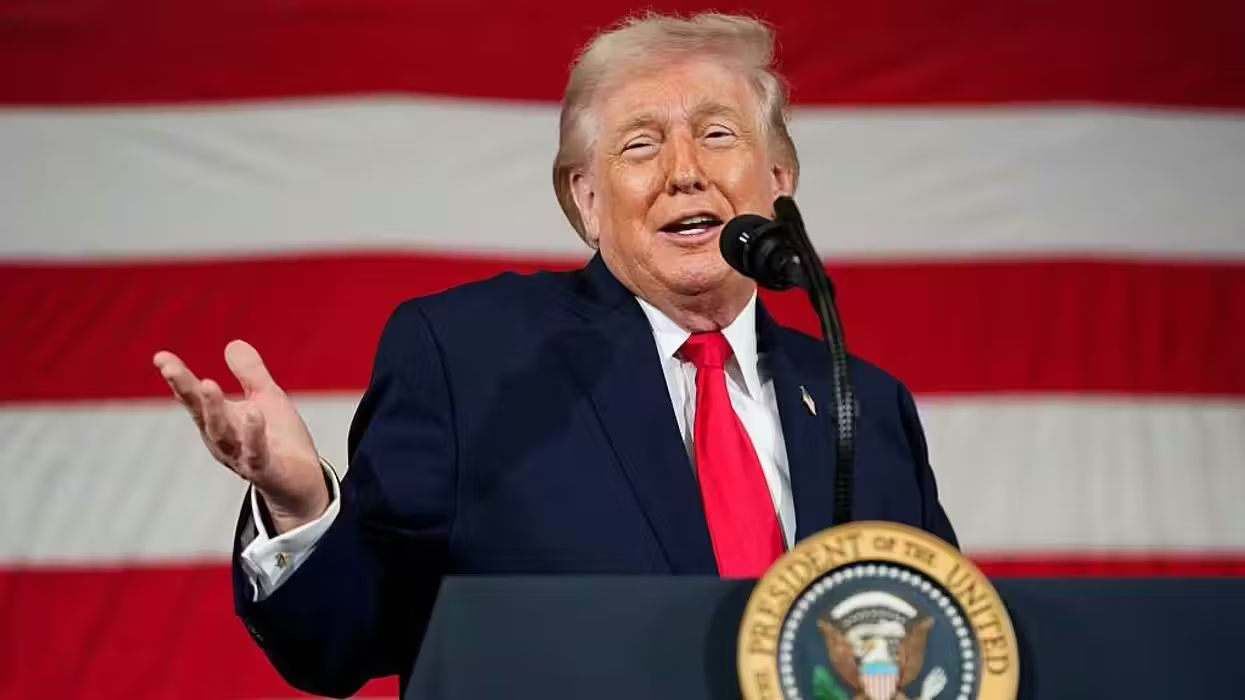
© 2026 Blaze Media LLC. All rights reserved.
Can the White House convince Arab allies to replace American troops in Syria?
April 17, 2018
The Trump administration is considering a new proposal that helps reduce the U.S. footprint in Syria, which would use the militaries of Arab allies to fill the void left by the departure of American troops.
U.S. officials told the Wall Street Journal Monday evening that Saudi Arabia, Qatar, the United Arab Emirates, and Egypt have been asked to contribute to the effort to bring stability to Syria. The administration is asking for both financial and military support for the endeavor, according to the report.
As Islamic State forces continues to lose ground in the fight against U.S. and coalition partners, worries have emerged that this effort has had the negative effect of empowering Iranian regional hegemony.
The Trump administration is hoping that Arab partners can potentially serve as that long-term bulwark against Iran’s caliphate ambitions, while continuing to pry Russia away from Iran and the Syrian regime’s sphere of influence.
The plan closely resembles a strategy white paper published by the Security Studies Group (SSG), a defense think tank based in Washington, D.C.
Jim Hanson, the president of the Security Studies Group, tells Conservative Review that the National Security Council asked his policy shop to write a detailed plan for action, taking into account President Trump’s goal of shrinking the U.S. footprint in Syria, while ensuring that U.S. regional interests are protected.
“We agree with President Trump and national security advisor Bolton that support from regional allies is vital for a smart exit from Syria. We cannot leave a vacuum that could be used by Iran to cement their land bridge to the Mediterranean,” Hanson, who served in the U.S. Army Special Forces, tells CR.
“The danger that Iran will otherwise end up with de facto control of the Sunni areas and safe transit across Syria is extremely high. A third major Sunni insurgency is also likely if Iran or its proxies control these areas,” an executive summary of the plan reads. “To avoid these consequences, troops from the Gulf Cooperation Council (GCC) with command and control and air support from the U.S. and other allies should institute a protectorate in the Sunni regions.”
A key element of the plan involves decentralizing responsibility to particular blocs in Syria. While the GCC countries will handle the Sunni areas, Turkish forces can be held responsible for territory west of the Euphrates, while a protection zone for Kurdish allies will remain east of the Euphrates.
The plan has been met with mixed reviews from members of the D.C. foreign policy class. Longtime foreign policy analyst Elliot Abrams told Axios that he doubts the president would be able to summon Arab armies to fill the potential U.S. vacuum.
The president will undoubtedly face a stern challenge in convincing Arab allies to devote serious resources toward stabilizing Syria, but it’s a shot worth taking. During president Trump’s short tenure thus far, the White House already demonstrated that it has been able to move the Arab world toward dramatic reform and prioritizing counter-terrorism. Will President Trump succeed in rallying the Arab world around the cause of countering the Iranian regime’s malignant expansion in Syria?
#mc_embed_signup{background:#fff; clear:left; font:14px; }
/* Add your own MailChimp form style overrides in your site stylesheet or in this style block.
We recommend moving this block and the preceding CSS link to the HEAD of your HTML file. */
Want to leave a tip?
We answer to you. Help keep our content free of advertisers and big tech censorship by leaving a tip today.
Want to join the conversation?
Already a subscriber?
more stories
Sign up for the Blaze newsletter
By signing up, you agree to our Privacy Policy and Terms of Use, and agree to receive content that may sometimes include advertisements. You may opt out at any time.
Related Content
© 2026 Blaze Media LLC. All rights reserved.
Get the stories that matter most delivered directly to your inbox.
By signing up, you agree to our Privacy Policy and Terms of Use, and agree to receive content that may sometimes include advertisements. You may opt out at any time.






